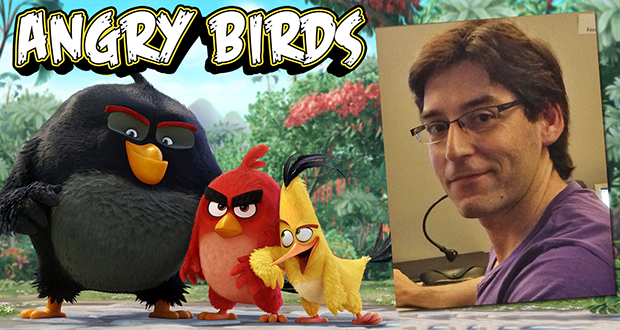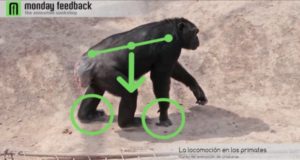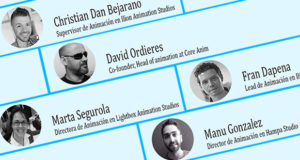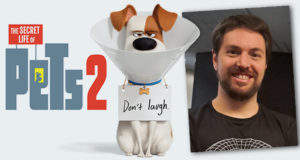01. Tell us brief fly about your professional background up to this day. Well I started over 12 years ago at a small studio called Limaia in the province of Orense, my hometown, that was trying to pull off a traditional animation project called “La Flor del Agua” Since it didn't quite work out from there I jumped into 3D animation at Dygra Films where I spent almost eight years animating for several projects, animated shorts and features, such as “El Espíritu del Bosque” , “Sueño de una Noche de San Juan” and Holynight despite the fact that I didn't work until the end of production in the last one since the studio was going through less fortunate times.
Given that the Galician animation dream didn’t quite work out I ended up packing and moving over to Madrid to work at Lightbox Entertainment for “Tadeo Jones” where I spent a year and a half and later had the chance to leap over the pond to Sony Imageworks for “Cloudy With a Chance of Meatballs 2” ., (Vancouver, canada), I later returned to LightBox as Lead Animator for “Capture the Flag” and currently I'm back at Sony as Senior Animator for “Angry Birds”.
02. Did you work in any other field before animation? Did it help you in anyway in your professional career?
Truth is no, before working at Limaia I had done some previous work in illustration or small creative projects but nothing too relevant or paid long term, I guess my fondness for drawing and illustration helped me in my earlier stages in 2D traditional animation.
03. Before working as animator . what drew your attention to this field?
Back then I wasn't even aware there was an animation industry in Spain, We're talking about a time where Disney was the only studio making ( quality) feature films and there weren't any schools like the ones we see today, in addition this type of information wouldn't be handed out to you by school advisors, so it sounded like something American that was only done from the other side of the pond. However already in my twenties I would ( secretly ) feel hyped about 'The Little Mermaid', or sing Genie songs from 'Aladdin' in English and Spanish, I actually saw the ability animation had to convey emotions which fascinated me.
04. How did you first land a job in the industry? What was the key to make it inside?
As I previously stated I wasn't even aware that there was anything even remotely close to an animation industry in Spain, so I never set a goal to become an animator ( nor would I know to do that) However in a way it was animation that came knocking on my door, after four years of studying Fine Arts at Pontevedra, and not really feeling fulfilled nor motivated with what they were trying to offer, I found a studio that was being put together in Orense (Limaia) that was giving a yearly traditional animation course for free, Those who would demonstrate the necessary skills would by the end of the course hired for the making of a feature film, so I spent a year there , at a small studio in the small town of Orense learning animation, and where I found that there were people making a career out of this in Spain for years.
By the end of the course I was hired and from there, since the studio didn't make it long I was hired at Dygra where I worked as an animator on the board for almost 8 years, So the key to land a job was on one hand being on the right place, and on another hand putting the passion and detail into what I did, and specially attitude, , attitude is very important in a job where everything is creativity but you're being subjected to constant criticism.
05. If you had to start froms cratch in this profession how would you go about it?
Today I would surely enroll in a school (face-to-face or online), It's incredible the amount of options we now have for learning, Back then you'd learn by symbiosis with whom you had on your side and many things you'd simply develop on your own, Now there's a name and technique for everything ( I think I only heard the word blocking after 5 years of working), but above all I wouldn't spend so much time at the same company, It's important in the beginning of your career, when you're younger and have more energy, to follow several directions, different visions and supervisors, work alongside people coming from different places, You absorb that and end up learning the point you're at yourself and having a more objective and global perspective of animation, while doing a little bit of travelling along the road as well
.
06. What’s the most important thing your work has contributed to your personal life?
I guess that mostly the feeling of not having a real job but being paid for doing something I like (although it changes a little bit over the years), A few years ago the opportunity to travel, although this also has the other side of the coin
.
07. What would you change in the animation industry if you had the ability to?
So many things where do I start ?!… To name a few:
I think that when you've been dedicating yourself for some time you start missing some kind of stability, of not having to worry about after you're hired at a studio what's going to be the next step, You can never settle, It gets harder every time you pack, Gets harder every time you're interviewed, and you can't stop asking yourself until when? What's initially an encouragement later becomes a burden.
Another thing is that I never really got along with the hurries and stress, The fact that they give you one of those perfect shots for the reel, and you realize you've only got three or four days to finish it, To be honest my time has taught me that things take the time they take period, and interestingly following this philosophy never made me feel any problems with delivering past due dates, but still the days where the production crew is on top of you to finish something by this or that hour makes you end up hating that shot.
08. What’s the project you’re the most proud of to have worked on?
I think I'll always hold Tad dearly, It was a time of change for me, the first time after many years dedicating myself to this that I felt my work shun and fit in the whole, I'm aware of the fact that it's not a super production, but it allowed me to push my skills to the limit so I did as best as I could and you don't have that opportunity in every production.
09. What was the most discouraging moment in your professional career? What helped you overcome it?
It was clearly my last period at Dygra, Some things hadn't been working out for a while and I knew that sooner or later it wouldn't last, It came to a point where I didn't agree with anything they were doing and when you start losing trust in your mentors and supervisors that's when you start thinking.
Surely enough everything ended dramatically, with board meetings and collective payment demands, What was initially a precious job became a daily ordeal
.
What helped me overcome that was turning the page, moving to another company, and working with a different team, with people who were sincere in what they were doing whose sole purpose was to make a quality movie instead of personal nonsense. I strengthened my ideas as to how things should have worked out in my previous job and found new ones that made me evolve as an animator, I then realized how much I had stagnated during many years and I gained perspective.
10. What part of the working process do you enjoy the most? What part do you enjoy the less?
Curiously it's the refine or spline part, because that's when the shot's already gone through the biggest filters, You can sit back plug in your headphones and listen to your favorite song while making this idea the director likes come together, You make a breakdown here, you try a more exaggerated acceleration on that arm and put in more emphasis on that expression, a little arc on the head maybe …, of course you can be changed your shot altogether when it's refined ( laughs) ) but facing a blank canvas building a blocking from scratch and seeing whether it fits with the director always makes for a certain degree of stress for me.
11. Do you have any personal projects? Could you tell us about any?
The truth is nothing specific, usually I try to dedicate my spare time in other things, I've got a lot of hobbies, I like modelism , DIY, building things and sometimes I have some crazy ideas on how to capitalize them in some way related to animation but without really doing animation.
12. What advice would you give to someone who wishes to get in to this industry?
Attitude I guess, Attitude has always been important to me although I know it can be tough sometimes, It's a job where we put our hearts to it, sell ideas and those ideas are always subjected to constant supervision and criticism, In how many jobs does that happen? It's important never to lose proper behavior with your coworkers, your leads and your supervisors, even if it's you who supervises, you never know who'll be supervising you on day, If you're not happy with the way the studio works the best thing you can do is leave, but experience tells me that even if you defend an idea until the end and impose your criteria over that of the supervisors… In the end you're not going to be fulfilled
.
Fernando Franco web site
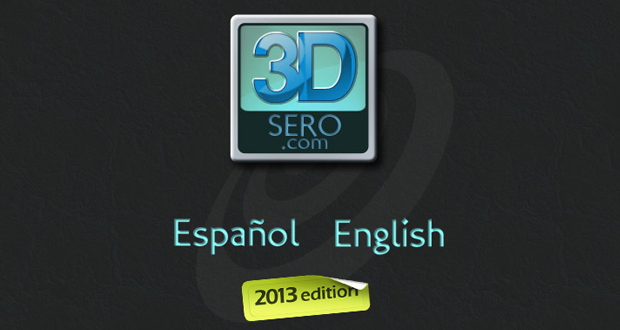
 MAXI DIAZ Animation blog
MAXI DIAZ Animation blog

